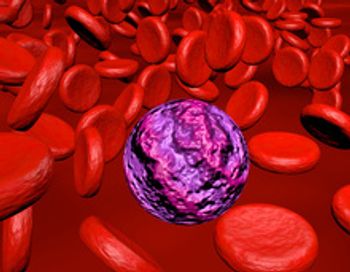
Arsenic trioxide combined with all-trans retinoic acid and idarubicin significantly improved event-free survival vs ATRA and chemotherapy in patients with newly diagnosed, high-risk acute promyelocytic leukemia.

Your AI-Trained Oncology Knowledge Connection!


Arsenic trioxide combined with all-trans retinoic acid and idarubicin significantly improved event-free survival vs ATRA and chemotherapy in patients with newly diagnosed, high-risk acute promyelocytic leukemia.

Data from STARGLO showed that fixed-duration glofitamab-gxbm (Columvi) plus gemcitabine/oxaliplatin significantly improved survival compared with rituximab (Rituxan) plus gemcitabine/oxaliplatin in select patients with relapsed/refractory diffuse large B-cell lymphoma.

Positive margin rates have not appeared to improve for patients with cancer undergoing surgical care based on several prior studies.

A recent Training Academy focused on the advancements of treatment for patients with NSCLC EGFR mutations and exon 20 insertions.

Blinatumomab demonstrated “impressive activity” in the ALLTogether1 DS study, according to Sujith Samarasinghe, BSc, MBBS, MRCPCH, FRCPath, PhD.

Phase 3 data from the E1910 trial support the FDA approval of blinatumomab in CD19-positive Philadelphia chromosome–negative B-cell precursor ALL.

Data from the REVEAL trial support identifying history of thromboembolic events as a potential novel risk factor in those with polycythemia vera.

Data from the DUO-E trial support the FDA approval of durvalumab/chemotherapy for those with primary advanced or recurrent dMMR endometrial cancer.

Investigators must continue to explore the space for lisocabtagene maraleucel in mantle cell lymphoma, according to Manali Kamdar, MD.

More than half of the patients included in the phase 1b BP41072 study achieved a complete response to englumafusp alfa plus glofitamab.

High-grade cytokine release syndrome in the WU-CART-007 1001 trial was manageable with supportive care.

The rate of disease progression among patients with low- or intermediate-risk myelofibrosis appeared to increase over time in the MOST study.

Administering CAR T-cell therapy in an outpatient setting to patients with relapsed/refractory non-Hodgkin lymphoma was deemed feasible and safe.

Patients with 1 prior line of therapy had improved outcomes on acalabrutinib compared with those who had 2 or more prior lines.
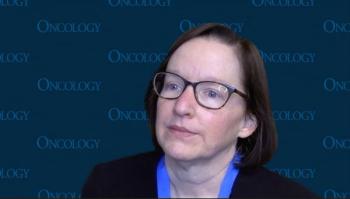
Those with CML should discuss adverse effects such as nausea or fatigue with their providers to help optimize their quality of life during treatment.

TRANSCEND NHL 001 subgroup analysis found that liso-cel may be more effective for patients with mantle cell lymphoma in earlier lines of treatment.

Those with relapsed/refractory multiple myeloma and lower tumor burden are also more likely to have deeper responses to idecabtagene vicleucel.

The June Hot Topics focuses on the challenges venetoclax regimens have faced in multiple myeloma trials.

Patients with hormone receptor-positive breast cancer experienced weight loss when given a plant-based diet plus exercise.

Patients with CML can become an active part of their treatment plan by discussing any questions that come to mind with their providers.

Data from a phase 1 trial may support the utility of IBI343 for patients with advanced pancreatic ductal adenocarcinoma.

Patients 12 years and older with NTRK gene fusion-positive solid tumors may now receive repotrectinib.
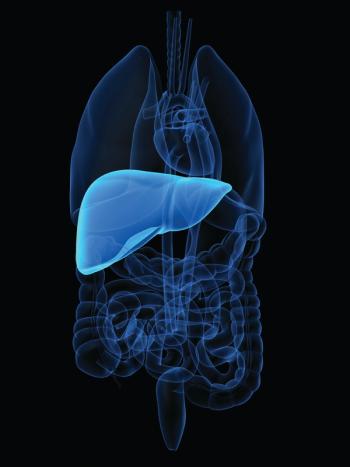
Investigators of the HEPATORCH trial will present additional data on toripalimab plus bevacizumab in this population at a future academic conference.

"Anything that you can do to leverage technology to minimize the variability in surgery eliminates the skill gap so that novice surgeons may become as technically gifted as the intermediate surgeon or the master surgeon."
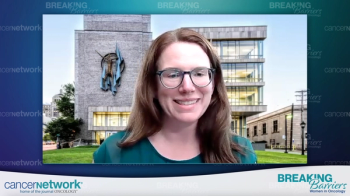
Public health researchers highlight how they learned to overcome and adapt to disparities observed during their careers.

Data from the phase 1/2 LIBRETTO-001 trial support the FDA approval of selpercatinib in patients with RET fusion-positive thyroid cancer.


Psychology intervention service may improve gratitude, anxiety, and physical function when a hematopoietic stem cell transplant is conducted vs standard of care.

Johnathan Q. Trinh, MD, et al discuss a novel case of a patient with an aggressive CDKN2A-mutated spiradenocarcinoma who responded to a CDK4/6 inhibitor.
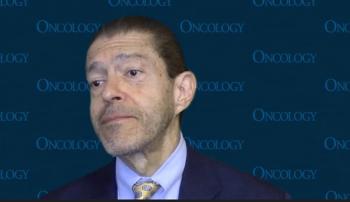
Jorge E. Cortes, MD, emphasizes proper communication between patients with chronic myeloid leukemia and their providers during the treatment course.